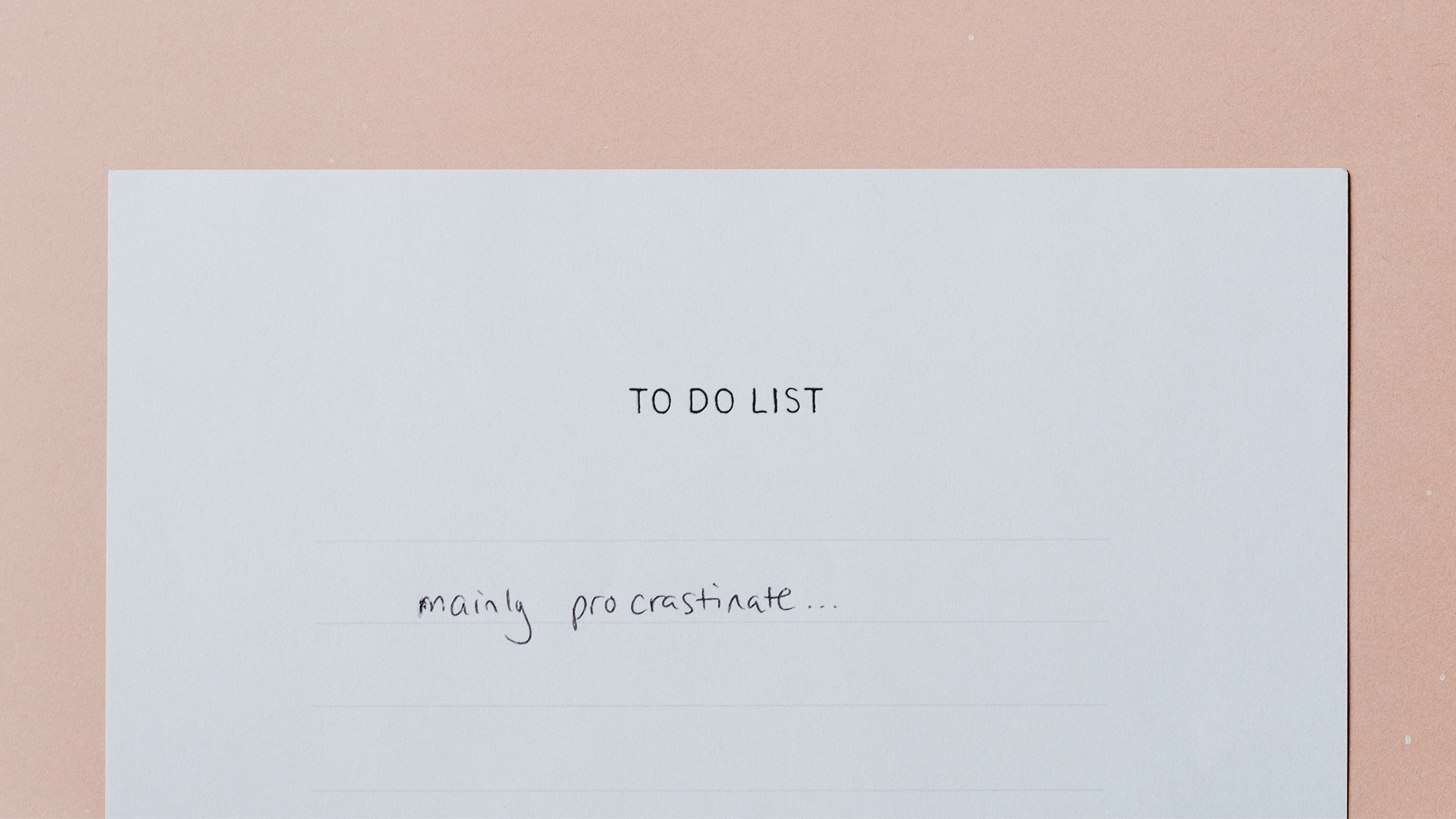Feature image: Annie Spratt/ Unsplash
Four in five Australian students suffer from procrastination according to a recent study commissioned by study help service Studiosity.
For 33 per cent of students surveyed, stress, anxiety and loneliness trigger a loss of motivation, which leads to procrastination. 12 per cent of respondents were international students, with a virtually equal gender split among all respondents.
The Tertangala spoke to Professor Judyth Sachs, Chief Academic Officer for Studiosity, about tips and insights on why we might procrastinate and what we can do to get more out of our study sessions.
The first step is to ask ‘why am I procrastinating?’
“And if you can answer that question then you can put in place various interventions that will help you break the habit,” Prof. Sachs says.
1. Have an accountability partner
Getting yourself to commit to deadlines and daily study tasks can be hard when you don’t feel like doing anything. So why not get a friend or peer to keep each other accountable for a subject or assignment?
The key is to clarify your study goals, and make them S.M.A.R.T (specific, measurable, attainable, relevant, and time-bound). Check in with your study buddy regularly, once a week or even every day. Having someone else keeping you accountable can help you get back on track if you’ve been distracted. It also adds a bit of positive peer pressure to get work done.
2. Use online support services, apps, and study-help content from YouTube
Prof. Sachs is quite adamant that there is a hoard of resources out on the internet to help you come up with tactics to counter your procrastination. Studiosity is one of them, which is free to UOW college students.
Apps like Flora might be a good option to keep you on task and away from your phone. YouTube can also be a treasure trove of videos to help you with your procrastination habits.
“There are all sorts of distractions,” Prof. Sachs says.
“You get distracted by your social media posts, you get distracted by text messages, you get distracted by emails, you get distracted by the television.
“One of the really important things when you look at the research is that you actually need to get rid of those distractions so that you can just focus on the task at hand.”
3. Assess your assessments
You know that first week of the semester where we don’t really do anything? Well, Prof. Sachs says we could be using that time to map out our whole semester.
“At the beginning of every semester, as part of your plan, just indicate ‘how much time will I need for research? How much time will I need for writing? How much time will I need for reviewing?’”
This can help prevent last minute all-nighters and make the rest of your semester less stressful. Even if you’re midway through session, you can still plan out how much time you need to complete an assignment and allocate times to work on it.
“When you start to procrastinate, when the spiral of anxiety and stress starts to get in place, you’re no longer thinking clearly.”
“And so, you want to solve the short term issue, which is getting your assignment in, rather than solving the long-term issue, which is how can I plan my time so I can do the best I can do in getting a good grade,” Prof. Sachs says.
Other findings of the study
There might be deeper reasons for procrastination which can’t be as readily solved with a to-do list. Much like the Great Resignation movement happening in the US, students are reconsidering their degree choices.
“Around eight per cent of the students said that they’d lost interest in their degrees because it’s irrelevant to their future career,” Prof. Sachs says.
Uncertainty about their degree may lead to a drop in motivation for students, which can lead to procrastination.
If you are studying for the career you want to pursue, procrastinating can also hurt your odds of success.
“At the very high level, it can restrict your potential and undermine your career. Because you are in a constantly disorganised, highly anxious state and hence your stress levels are exaggerated,” Prof. Sachs says.
Additionally, procrastinating can have a heavy impact on something we all loathe at uni– group assignments.
“If you’re a part of a team and you’re procrastinating and everybody else has asked you to do something, it certainly reduces morale. And, you know, at it’s worst the team can perform as a whole really badly,” Prof. Sachs says.
“And that’s why for some people, they really hate teamwork because a couple of people let you down and you’re wearing the consequences.”
We’ll end by coming back to the point about loneliness and stress leading to procrastination. Prof. Sachs says this is mostly down to losing your confidence and being stuck with intrusive, negative thoughts about yourself. When this happens, we might just procrastinate to escape.
“At its worst, it can sadly become a serious mental illness,” she says.
“So, one of the things that I think is really important is creating in universities a campus where students do feel, through various means, connected.
“And it’s connected to their peers, it’s connected to their lecturers and it’s just connected to a place that’s safe, nurturing, where they feel ‘this is where I want to be.’”



